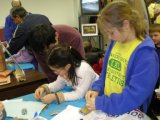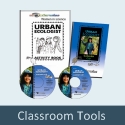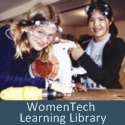Two noteworthy events have occurred recently in the science, technology, engineering and math (STEM) arena.
The American Association of University Women (AAUW), released a report “Why So Few? Women in Science, Technology, Engineering, and Mathematics“. And, sadly, Jaime Escalante, an outstanding math educator and one of my heroes, passed last week at age 78.
In my mind, Jaime Escalante’s teaching style personified what AAUW’s extensive review of the research literature recommends: send the message to students of all backgrounds—regardless of race, class, or gender—that they can excel in math and science, and they will.
Sounds simple, yes? But we all know that it’s not so simple to change the mindsets of students who often hear the opposite message coming at them from home, peers, the media, and even educators.
Many of Mr. Escalante’s students in the inner city Los Angeles high school where he taught had been hearing for years that they were not good at math or at school. To counteract this, he undertook a risky and relentless mission to let his students know they could excel at academics and achieve any career goal. His techniques were dramatic—for example he required students to answer a homework question before entering the classroom—but they needed to be in order to work.
And they did! By 1982, 18 of Mr. Escalante’s students passed the Advanced Placement (AP) Calculus exam and later 30 of 33 students passed.
To help girls know they can succeed in math and science, the AAUW study, which I highly recommend, points to a similar need for repeated messages. It also cites research that shows that interventions which expose females to positive messages about women in engineering increase their interest in this field.
Educators must be as relentless and dramatic as Mr. Escalante in sending the message that yes, girls and women can have math and science careers—whether this is at the university or the career technical education level.
 Put up posters in school hallways showing female role models in STEM careers, show career videos of role models in the workplace, arrange for women in STEM careers to visit classrooms and serve as mentors, encourage female students to visit websites that feature female role models, and do this repeatedly.
Put up posters in school hallways showing female role models in STEM careers, show career videos of role models in the workplace, arrange for women in STEM careers to visit classrooms and serve as mentors, encourage female students to visit websites that feature female role models, and do this repeatedly.
It will be through persistent and consistent messages that we will inspire girls to consider the full range of STEM careers open to them.
What are your thoughts about how to best send positive messages to female students? I invite your comments.
Early Bird Discount Ends April 30th – Next WomenTech Educators Training
Join us on June 28/29 for the next WomenTech Educator’s Workshop and we’ll help you create an action plan for showcasing positive messages to female STEM students. The $100 early bird discount ends on Friday April 30th, and our last training sold out weeks in advance, so be sure to sign-up now to reserve your space and save!
Going to WEPAN? Say Hello.
If you happen to be at the WEPAN/NAMEPA Conference in Baltimore today, I hope you’ll stop by Stadium 1-2 from 9:30 am to 10:30 am where I’ll be presenting my paper on “The CalWomenTech Project: Using Surveys to Inform Retention Strategies of Female Technology Students.” I’ll also have a table at the Showcase Spotlight Poster Presentation in the afternoon. Come by and say hello. I’d love to connect with you!








Recent Comments